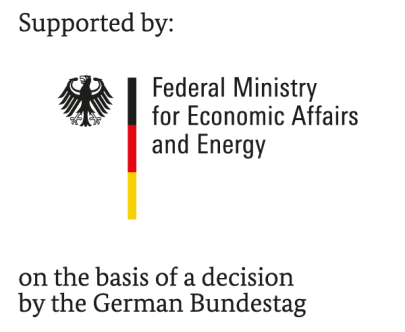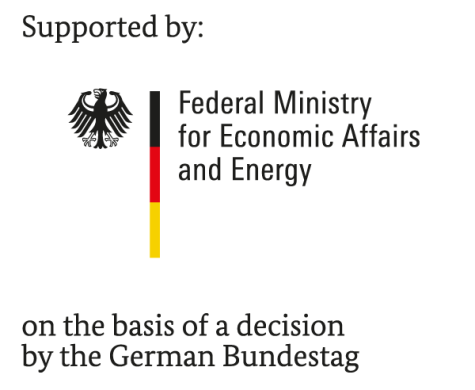Period: 2109 – 2022
The KoREV-SMS 2 project follows on from the KoREV-SMS project, which was also funded by the Federal Ministry of Economics and Energy. The aim is the long-term competitiveness of flywheels. In addition to a reduction of the purchase costs, this includes a reduction of the operating costs through high efficiency as well as long maintenance intervals and a long service life. In order to achieve these goals, the consortium of the project, of which the IMS has the leadership, is composed of representatives of various disciplines from both university and industry.
To reduce the acquisition costs, a higher utilization of the flywheel mass is desirable. This can be achieved by the determination of load limits for the material, since there are only few data available in the literature for thick-walled fibre reinforced plastic composites. The investigations are carried out on a centrifugal test rig developed at the IMS by means of endurance tests. To further reduce costs, self-sensing magnetic bearings are also being investigated. By measuring the position via the inductance change of the coils in the magnetic bearing, the position sensors can be saved. In addition, the tuning of the inverter and the motor of the flywheel are decisive for the acquisition costs. Therefore, one goal of the project is the development of an inverter optimized for flywheels.
In order to ensure the availability of the system, a further research focus of the project is the touch down bearing topic. In case of malfunction or overload of the magnetic bearings the touch down bearing have to catch the rotor and prevent an unintentional rotor-stator contact. These bearings are exposed to very high loads due to the high energy in the system and the high surface speeds of more than 250 m/s. In addition to tests with different touch down bearing concepts on a touch down bearing test rig, crash tests with a real sized flywheel mass are planned.
In order to increase the efficiency of the system, not only the intelligent load flow coordination but also the reduction of drag losses through the use of a reluctance motor are the focus of the research. A further topic in the field of efficiency investigated in the project is the use of a permanent magnetic pre-magnetization of the active magnetic bearings.



